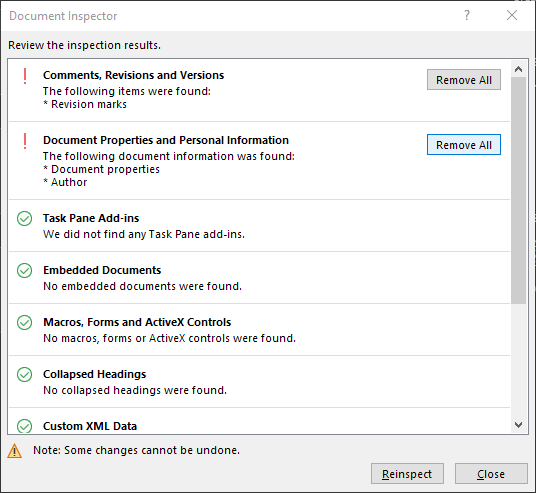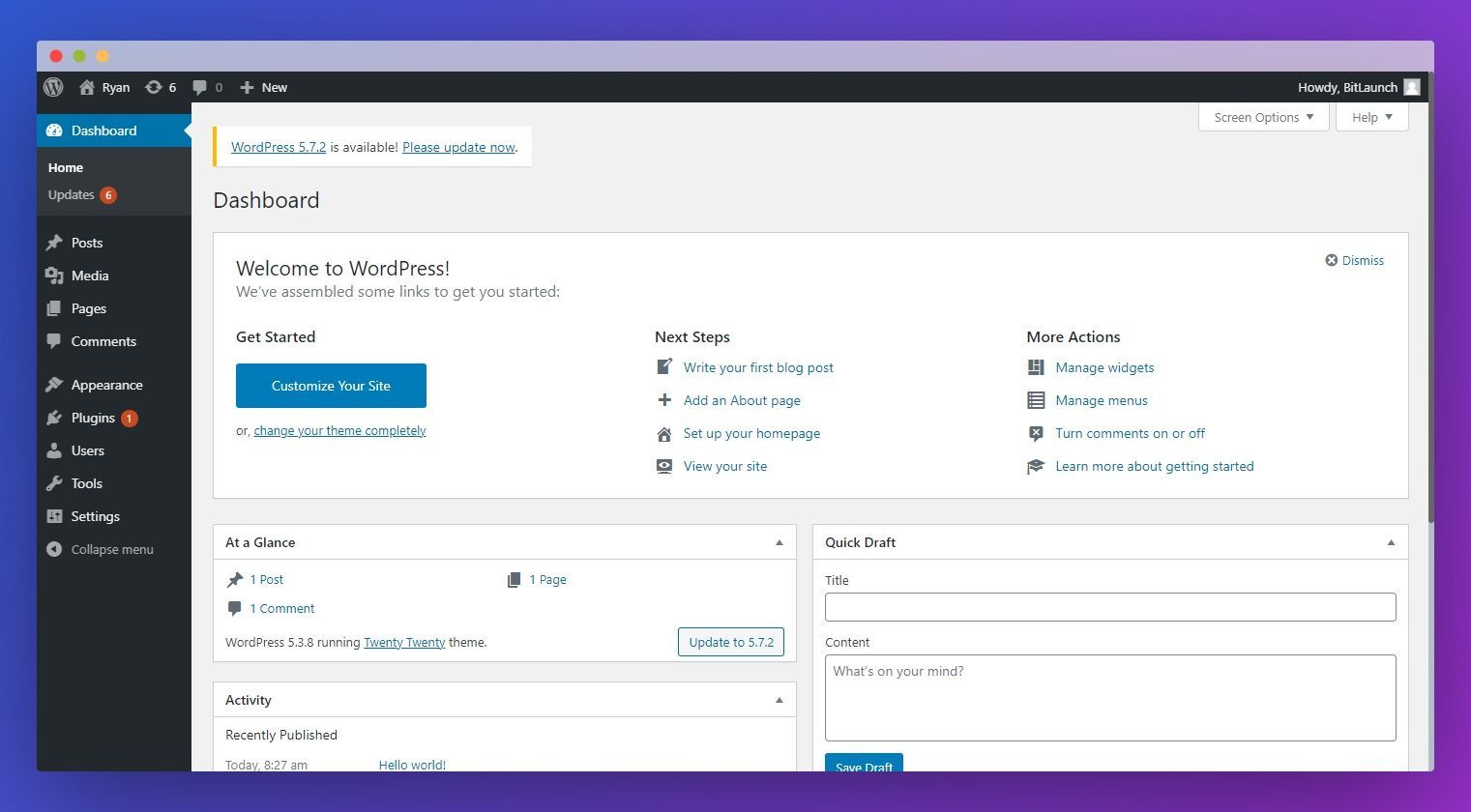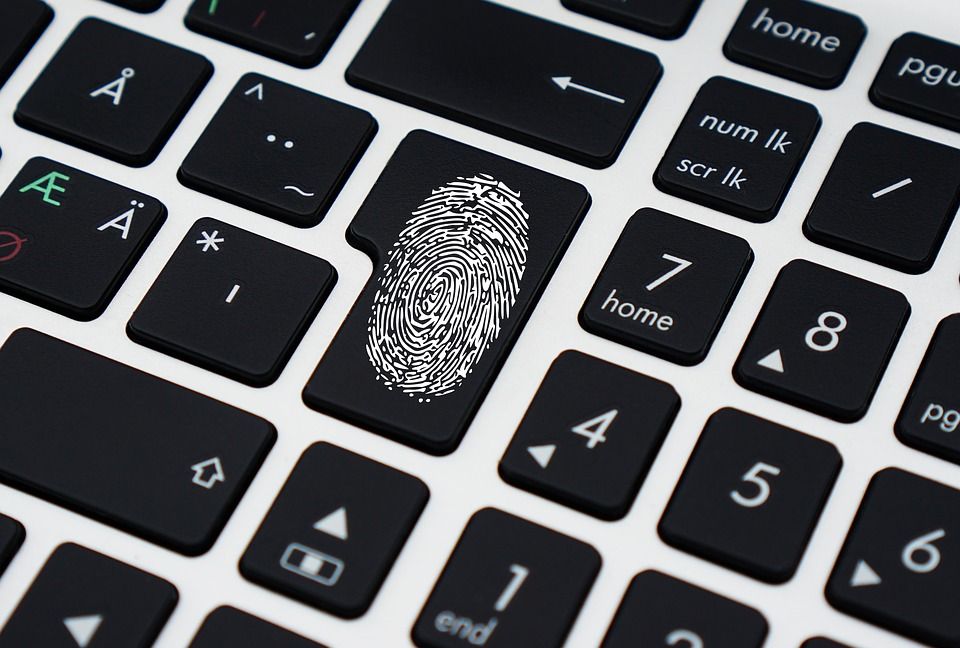Putting your thoughts into the world is a scary thing. Whether you're planning to create a blog to share your thoughts, review content, or your creative writing, starting out is difficult. You may not necessarily want your friends, family, or co-workers to know about the content you post. Sometimes, certain people finding out about your content may even damage your relationship with them or hurt your career prospects.
It's necessary, then, to be able to maintain a high degree of privacy if you wish. But doing so may be more difficult than you expect. There are several ways your true identity can be discovered if you do not take additional steps to protect it. This guide is designed to help you create a blog that's private from the offset and avoid the pitfalls many private bloggers fall into.
Domain names
Domain name registration information is perhaps the most common way for a person's true identity to leak. A directory called WHOIS lists every domain and their owner's name, email address, telephone number, and mailing address. In fact, registrars were required to make this information available by default. This allows others to contact you about your domain or identify misuse. Generally, a noble cause, but not a good thing if you're trying to exercise your right to privacy online.
Luckily for you, GDPR has fundamentally changed how WHOIS functions. GDPR granted EU citizens certain rights surrounding the information that is allowed to be published about them, and that extends to domain registration. As a result, the Internet Corporation for Assigned Names (ICANN) reluctantly issued a temporary specification that locks most personal data to layered/tiered access instead of public access. Only those who have a legitimate and proportionate purpose to access the data can view it. Registrars can choose whether to apply this globally or just to citizens within the EU.
So how do you define a legitimate interest? According to digital law lawyer Oriana Labruyère, it's at the discretion of registries and registrars. Generally, under GDPR, they can pass on the identity of the owner if:
- There is no other way to identify them
- If it is necessary to safeguard the public interest
- If it is necessary to protect a trademark
No. 1 is naturally not ideal if you're looking to run a blog anonymously, but the registrar can still reject the request if it infringes on the domain owner's fundamental rights and freedoms.
All of this is to say that while GDPR may protect you to some extend, especially if you are an EAA citizen, it also may not. And, ICANN is working hard to challenge the EU on its ruling in regards to domain names. Further, many privacy/proxy services and registries require customer's Whois data to be shared with them. This brings us to the solution:
Use a registrar that supports domain privacy
Various services are available to replace your real information with that of a third party. Namecheap, for example, makes use of a service called Withheld for Privacy, which replaces your information with non-identifiable details. To further protect yourself, you should preferably use a registrar that does not have an identify verification process and allows you to sign up with a pseudonym as a result. This way, even the registrar does not have your real identity and therefore cannot pass it on even if they want to. Of course, you should also pay with cryptocurrency where possible, as you credit or debit card will likely be linked to your real identity.
Pseudonyms
It goes without saying that you should use a pseudonym on your blog if you want to stay anonymous. Using your real name would defeat the purpose. There are a few things to consider when choosing a pseudonym:
- Do you want to use a false name, or your brand/site name? This will likely depend on the context of the blog you're hosting. If the content primarily surrounds personal matters, using only a brand name may feel a bit odd and raise more questions. If it's a blog for a company/service, a brand name may be more suitable and professional, but could also remove the personal touch.
- Have you used your pseudonym before? Many people use pseudonyms all the time without realizing it — their usernames for various gaming, social media, or forum accounts. When starting your anonymous blog, you need to consider whether your pseudonym can be traced back to you from other services. If you have an existing following under a pseudonym, it may be worth the risk to you to use it for your blog. For the best privacy, though, you should create an entirely new name for yourself.
- Is your pseudonym linked to your real identity? Some common pseudonyms make use of anagrams of a person's real name, their maiden name/ an ancestral name, the names of family members, or their first name followed by a different surname. It's tempting to adopt an identity linked to your heritage or interests, but the best privacy is found with one that has no relation to you at all.
You should use your pseudonym on anything related to your blog, including social media, email, domain, web hosting, etc.
Metadata
You need to be careful about any media you upload to your blog. Files usually contain metadata — if it's a photo, this may include the GPS coordinates the photo was taken, the phone/camera brand and model, and potentially the serial number. These can all be used to find your true identity. This applies to photos uploaded to other services, too, such as your social media. While some strip the metadata, some don't − so it's best to strip it yourself first. There are various EXIF metadata tools you can download to help with this.
Documents can be even more revealing. If you create a document with Microsoft Word, for example, your name will be embedded as metadata. Make sure you use the "Inspect Document" feature and then press "Remove all" next to the personal information heading to strip it.

If you want to be especially cautious, be aware of the data other sites may collect about you while you are browsing them. This can include things like your browser fingerprint, IP address, operating system, etc. To remedy this you can use Tor or a VPN with an ad/tracker blocker addon such as uBlock Origin. For maximum privacy we recommend you create your own VPS on a VPN. It's quick and easy.
Social media
It can be difficult to get started as an anonymous blogger as you do not have the initial support from family and friends to give you that initial "boost". This is why, if you're looking for any kind of wider audience, you'll need to build a strong social media presence. However, it's important to think carefully about what you post.
Not posting details about your family and friends or personal life is an obvious step to any anonymous blogger. However, there are other things that can give you away that you may not think of. As well as the metadata we mentioned earlier, which some social media platforms do not strip, the people you follow/are friends with can give you away. Tell even close friends about your blog, and their following of you can be enough to help narrow down your true identity.
Content in your images and posts that you may think is harmless may also help to narrow down your true location. It is possible to guess someone's precise location from a single image, so imagine the information multiple images and posts can give. Tattoos, Indeed, social media forensics experts regularly aid law enforcement in their investigations.
So, think carefully about everything you post. Make sure it can't be used to narrow down your real identity and that any friends and family do not follow you on their real accounts.
Use an anonymous VPS
You don't just hand over your personal information when you purchase a domain name. Just about every purchase you make requires a card, which clearly displays your personal details. The provider will instantly be able able to verify your true identity and potentially sell it or pass it on to law enforcement.
That's why at BitLaunch we only accept payments in cryptocurrency and only require an email address for sign up. We'll even let you use a temporary email provider if you wish. Further, the BitLaunch site runs no trackers and we only collect the information that is necessary to run our service.
How to start an anonymous blog with BitLaunch
Starting an anonymous blog with Bitlaunch is very quick:
- In your server control panel, press the '+' to create a server and select 'WordPress' in the apps tab.

2. Enter your domain name/IP address in your browser's address bar and complete the WordPress setup process.

3. Start blogging!
Closing words
Starting an anonymous blog is not easy. There are many aspects to consider when it comes to your privacy, and the consequences relating to them. When you can't express your true identity, it is harder to market yourself, create an authentic voice, and connect with the people who follow you.
However, with the help of privacy-conscious providers, it is far easier to exceed. With their helping hand, the freedom of being able to say what you like without personal consequences far outweighs any hassle required to stay private.
